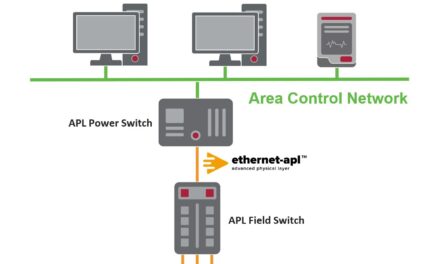 Paul Turner, senior design manager at AspenTech, describes how Advanced Process Control (APC) can help companies increase throughput, improve product quality, reduce energy and raw material usage, and increase overall operational efficiency while keeping the process between safe limits of reliable operation
Paul Turner, senior design manager at AspenTech, describes how Advanced Process Control (APC) can help companies increase throughput, improve product quality, reduce energy and raw material usage, and increase overall operational efficiency while keeping the process between safe limits of reliable operation
Process industry companies are under constant pressure to optimise their operations and meet customer demand. Business leaders are continually pushed to the limit to reach commercial targets against tight time scales. Along with market volatility, refining, chemicals and petrochemicals companies are also creaking under the encumbrance of overcapacities and the threat of shrinking margins.
The throughput of refineries in Europe and Eurasia has fallen by 13% in the past 20 years (from 22,682 thousand barrels/day in 1990 to 19,664 thousand barrels/day in 2010). In contrast, refiners in developing nations are witnessing a different trend. A recent report by market analysts Global Business Intelligence (GBI) expects that a total of around 198.1 million metric tonnes per annum (Mmtpa) of additional capacity will be installed in Asia and the Middle East during the next five years.
With the economic driver to improve plant performance and overcome strong competition, the ability to precisely control the plant and optimise the operation has always been an important priority for refiners, and those in the chemicals/pharmaceuticals industries. Many companies have turned to software technology to help address these perennial challenges.
Releasing resources
Too often companies experience quality variations, inconsistent throughput and high energy costs, which can cause operations to run below their actual limit. Unreliable operability and manual processes contribute to this problem. Minimising labour intensive functions, for example, is just one area that can release resources and help to improve process stability.
Instead of operators manually adjusting control units for specific variables in the plant, advanced systems provide models that automate regulatory and constraint control, as well as deliver process optimisation. Hence, Advanced Process Control (APC) is a general term used to describe different types of process control tools and methodologies frequently used for solving multivariable control or discrete control problems. It helps to improve the operation of production processes, resulting in the continuous management and optimisation of complex process interactions. The resulting benefits of APC are maximum profits, increased capacity and improved operational performance. Studies have revealed that APC can save annual operating costs and generate additional revenue with payback in less than 6 months.
An APC project first identifies a?business opportunity, after which a feasibility study is carried out to determine the likely benefits. A pre-test is then conducted with technical staff from the operator (production, scheduling, etc.) and the software vendor. A functional design specification will then be created by a software vendor’s lead engineer. This document will outline what the controller will do, what process parameters APC will manipulate and where the process will generate the highest profit from the plant.
The next step is to collect data from the process in order to build the process model. Step-testing then takes place, with the data allowing the engineers to build a preliminary model of the process. Once this has been analysed at the head office, simulations will be carried out and the software vendor will know what further tests need to be conducted in order to complete the final model and finish the proper step-testing phase. At the same time, the functional design will be edited once more towards its final state.
Step-testing can now be carried out in a much shorter time without causing production loss or process interruptions. The Aspen SmartStep Automated Tester and the new “Calibrate Mode” technology of Aspen Adaptive Modelling knows all the interactions in the process and uses the preliminary process model to be able to process simultaneous calculations, elicit information and refine the model accordingly with minimum interruptions to the plant. It also achieves constraint control of the process.
The process industries encompass an vast range of products, processes and plant configurations. Therefore, a range of APC solutions are needed to address such a diverse set of production processes. AspenTech offers many process industry software solutions. For example, aspenONE Advanced Process Control provides several approaches for advanced control applications: the Aspen DMCplus controller, Aspen Non-linear Controller and Linear State-Space Control – all encapsulated in a single, common environment called the Aspen Control Platform. This platform is a consolidated, user-friendly environment that provides flexibility, efficiency and ease of use for engineers.
Aspen DMCplus is a multivariable model-predictive controller that helps maintain processes at their optimal operating point. The recently released Aspen Adaptive Modelling incorporates the non-aggressive step-testing discussed earlier, while preserving the economic benefits of applications.
Leading by example
A leading Kuwaiti chemical company recently deployed Aspen DMCplus Controller and reduced variability and, in turn, optimised plant performance in ammonia production. The company reduced variations in the methane (CH4) slip by approximately 50%, reduced variability in excess O2 by 75%, reduced variability in the primary reformer outlet temperature by 60% and improved overall plant stability and process conditions maintenance for ease of operation.
In another implementation, a Czech refinery and petrochemical group reduced energy costs with the APC solution while realising estimated annual energy savings of approximately €2 million. The company also reported a return on investment within just six months. A senior process engineer was quoted as saying, “AspenTech’s APC solution has enabled us to make the whole plant more energy efficient by ensuring that operators have enhanced control over the operation of the furnaces. This frees up their time to focus on other tasks and helps lower overall fuel consumption.”
AspenTech
T:01189 226400


